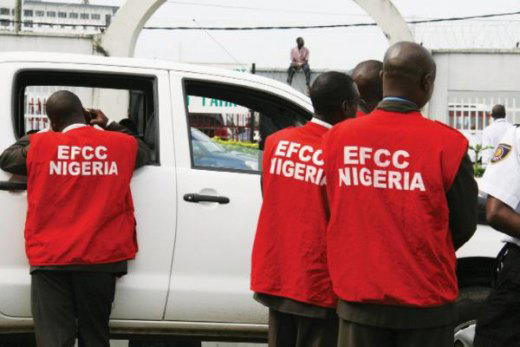The Economic and Financial Crimes Commission (EFCC) has raised alarm that the growing menace of internet fraud is worsening visa restrictions for law-abiding Nigerians seeking to travel abroad.
EFCC Chairman, Ola Olukoyede, warned that cybercrime not only jeopardizes the future of those directly involved but also tarnishes Nigeria’s reputation on the global stage, leading to stricter travel conditions for innocent citizens.
Olukoyede, represented by Chief Superintendent of the EFCC, CSE Coker Oyegunle, delivered the warning on Monday during an event in Port Harcourt, Rivers State, organised by the Coalition of Nigerian Youth on Security and Safety Affairs.
The statement was released by the commission on Tuesday.
“The EFCC boss highlighted that internet fraud, money laundering, and economic sabotage cost Nigeria billions of naira annually, undermining national growth and depriving citizens of infrastructure, jobs, and opportunities. Beyond the economic damage, he pointed out that the crimes erode Nigeria’s international image and subject innocent Nigerians to stricter visa restrictions abroad,” the statement read.
Olukoyede urged young Nigerians to channel their energy into productive ventures such as digital innovation, entrepreneurship, agriculture, and the creative industry rather than cybercrime.
He was quoted as saying, “Fraud is not success; it is a trap. Easy come, easy go. Many who follow the path of ‘yahoo-yahoo’ always end up losing their freedom, reputation, and future. The law is catching up with them and digital footprints never disappear. Don’t destroy your tomorrow with shortcuts today.”
The EFCC boss also reaffirmed the commission’s commitment to intensifying sensitisation campaigns, enforcement efforts, and collaboration with local communities to curb cybercrime and related offences.
These developments follow the July announcement by the United States of a revised visa reciprocity schedule for Nigeria, which reduced the validity of certain non-immigrant visas—such as B1/B2 (business and tourism), F (student), and J (exchange visitor) visas—to three months and limited them to single entry.
The post ‘Yahoo boys fueling tougher visa restrictions for Nigerians’ – EFCC appeared first on Vanguard News.

